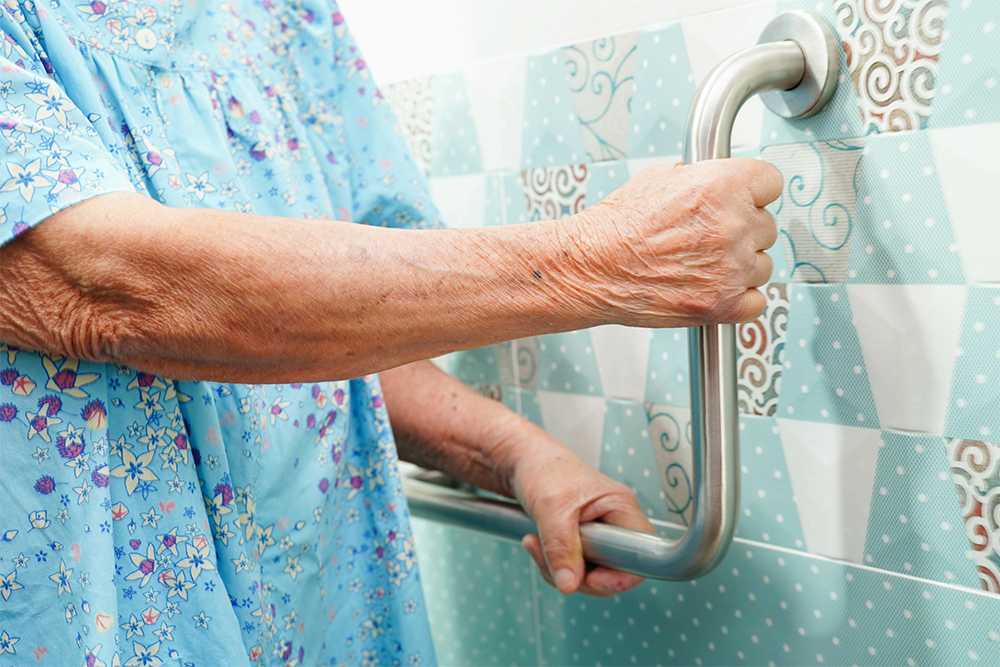Posted by Janine Griffiths
Do you have to pay back a disabled facilities grant?

It’s completely understandable to feel a little overwhelmed when it comes to the idea of funding home adaptations. Whether you’re exploring options for yourself or helping a loved one, it can feel like stepping into a world of paperwork, policies, and unfamiliar terms. And when the word “grant” is mentioned, many people instinctively wonder if there’s a catch somewhere. Will it need to be paid back? Could it affect the future of your home or savings?
A Disabled Facilities Grant (or DFG) is designed to make everyday life safer and more manageable for people who need extra support at home, whether that’s through installing ramps, adapting a bathroom, or fitting a stairlift. It’s incredibly helpful. But still, you may be wondering: do you have to pay back a Disabled Facilities Grant?
That’s the question we’ll be answering here, in a simple and reassuring way. No jargon. No confusion. Just what you need to know, so you can make informed choices with confidence and peace of mind.
What is a disabled facilities grant?
Before we dive into the question that’s likely brought you here - do you have to pay back a disabled facilities grant? - it helps to understand what the grant actually is, and why it exists in the first place.
A Disabled Facilities Grant, often shortened to DFG, is a type of financial help offered by local councils across England and Wales. It’s designed for people who live with a disability or long-term health condition and need changes made at home to stay safe, independent and comfortable. This might mean adding a ramp, widening doorways, fitting a stairlift, or turning a bathroom into something that’s easier and safer to use.
You apply through your local council, and the process usually starts with an assessment to understand what kind of adaptations you need. The heart of the grant isn’t about red tape - it’s about making sure your home works for you, not the other way around.
Do you have to pay back a Disabled Facilities Grant?
This is the part most people want to know straight away. It’s the question that lingers in the back of your mind, even as you're thinking about stairlifts or walk-in showers.
Here’s the honest answer: in most cases, no, you don’t. The Disabled Facilities Grant is intended as support, not as a loan. If the total grant awarded is £5,000 or less, you won’t be asked to repay a penny, no matter what happens down the line.
For grants above £5,000, things are a little different, but still far from scary. If you sell or transfer ownership of your home within 10 years of receiving the grant, the local council may ask for some of that money back, up to a maximum of £10,000. But that isn’t a given. Not all councils choose to reclaim the funds, and they’re supposed to consider your personal circumstances before deciding.
It’s worth knowing that policies can vary depending on where you live, so if you're feeling unsure, your local authority is the best place to turn for a clear and tailored explanation.
What if you inherit or buy a property with a grant-funded adaptation?
Buying or inheriting a home can bring a mix of emotions, pride, uncertainty, maybe even a few nerves. And if that home has already been adapted through a Disabled Facilities Grant, it’s only natural to wonder whether that comes with any strings attached. Do you take on the responsibility for the grant too? Will there be money to pay back?
Generally speaking, if the grant was given to the previous owner and you are now inheriting the property, you usually won't be expected to repay it. These grants are provided to help the individual in need, not to place a burden on future owners. However, it's always a good idea to check with the local authority that issued the grant, just to be absolutely sure and put your mind at ease. Every council might have slightly different nuances in their policies, so a quick chat can clear up any lingering questions.
Ultimately, these grants are about improving lives and fostering independence. They’re a testament to a caring society that supports people to stay in their homes. So, whether you inherit or buy a property with these thoughtful adaptations, you can rest assured that, in most cases, you're simply gaining a home that has already been made more accessible and welcoming.
Practical tips and peace of mind
When it comes to funding home adaptations, peace of mind is just as important as practicality. And with something like the Disabled Facilities Grant, a little preparation can go a long way. Knowing what to expect, and how to stay on top of the paperwork, can help you focus on what really matters - your comfort, your safety, and your independence at home.
First things first: hang on to every letter, form and approval note you get related to your grant. Having a clear record makes life easier down the line, especially if you’re thinking about moving or just want to double-check the terms.
If you're ever unsure of whether you have to pay back a Disabled Facilities Grant, don’t sit and stew on it. Give your local council a ring. They’ll have the answers and can explain how things apply to your specific situation.
And perhaps most importantly, don’t let worries about repayment put you off applying. This grant isn’t a loan. It’s a form of support. It exists to help you stay in the place you call home, in a way that works for you. That’s not something to feel nervous about, it’s something to feel reassured by.
The grant that’s meant to help, not hinder
In the end, the Disabled Facilities Grant isn’t something to be feared or second-guessed. It was created with care, thought, and a very real understanding that homes need to adapt as we do. Whether it’s a change in mobility or a long-term health condition, this grant exists to make life easier, not harder.
Understandably, you might come to this topic asking: do you have to pay back a Disabled Facilities Grant if your situation changes? The truth is, the majority of people will never be asked to repay it. Even when repayment is possible, it’s carefully considered, capped, and only comes into play under specific circumstances, like selling your home within ten years of the work being done. It’s not a burden. It’s a safeguard.
What matters most is feeling empowered to ask questions and seek out the support you deserve. Whether you’re applying for the first time, helping a loved one through the process, or simply looking ahead, knowing your rights and the reassurances built into the system can lift a weight off your shoulders.
So take that next step with confidence. Keep your paperwork in order. Reach out to your local council if anything feels unclear. And above all, don’t let worries about red tape or repayments stand between you and a home that works with you, not against you.
The Disabled Facilities Grant is here to help you stay where you belong, and that’s something worth embracing.
Looking for a home care provider?
If you find day-to-day tasks a challenge, home care can help you live more independently in your own home while getting the support you need.
Autumna makes it easy to find the best home care provider for your circumstances. All you have to do is visit our website and select the type of care you need from the boxes above the search bar. Type in your location and then press enter.
You will then see a list of providers in your area.
For more specialist help, you can use our shortlisting tool to be matched with an even more personalised list of providers.
Alternatively, you can contact our friendly and reliable team of advisors on 01892 335 330.
Receive a Free Care Provider Shortlist!
Let our expert team of advisers get your search off to a great start.
Tell us a little about your needs and we'll send you a bespoke shortlist of care providers! Click the button below to begin, it takes just a few minutes.
Other articles to read
From the blog

Older Persons Care Advice
How to talk to your parents about care options
October 2nd, 2025
Learn how to talk to your parents about care options with compassion. Explore choices together and plan for the future with dignity and respect.

Older Persons Care Advice
Guide to empowering and promoting independence in older age
September 30th, 2025
Read our practical guidance for families on empowering and promoting independence in older age, helping loved ones stay confident and in control.

Older Persons Care Advice
Ultimate guide to jointly owned property and care home fees
September 26th, 2025
Understand jointly owned property and care home fees, how assessments work, and steps to protect your finances and plan ahead with confidence.
Frequently Asked Questions
You might be asked to repay a Disabled Facilities Grant if it was over £5,000 and you sell or transfer your home within 10 years of the work being done. Even then, it’s not automatic. The council must have clearly stated the repayment terms in writing when the grant was awarded. If they didn’t, they can’t ask for it later. It’s always worth double-checking your paperwork or speaking to your local council for clarity, especially if you’re planning to move.
Yes. Even if repayment conditions apply, local councils have the discretion to waive them.
You’re unlikely to be asked to repay the grant if doing so would cause financial hardship, affect your wellbeing, or if you’ve lived in the home for more than 10 years since the work was completed. If you're unsure, just ask your local council. They can explain exactly how the rules apply to your situation—and often, a simple conversation can provide a lot of reassurance.
Usually, no. If your grant is £5,000 or less, there’s nothing to repay. For grants over that amount, you might be asked to repay some but only if you sell or transfer your home within 10 years. Even then, it’s capped at £10,000, and your local council will consider your situation before making any decision.
Repayment rules can vary by area, so it’s always a good idea to check with your local authority if you’re unsure.






